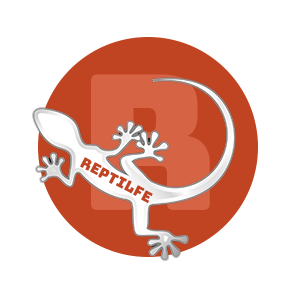Introduction to Reptile Intelligence
When we talk about intelligent creatures, we often think of mammals like dolphins or primates. But what about reptiles? They may not be the first group that comes to mind, but recent studies have shown that reptiles possess a surprising level of intelligence. In this section, we will delve into the fascinating world of reptile intelligence, defining what it means and dispelling some common misconceptions.
-
- Defining Intelligence in Reptiles
Intelligence in reptiles is not as straightforward as it might seem. Unlike in humans, reptile intelligence cannot be measured by their ability to learn and remember. Instead, it is defined by their ability to adapt to their environment, solve problems, and exhibit complex behaviors. For instance, some reptiles can navigate mazes, recognize themselves in mirrors, and even exhibit social learning, where they learn from observing other reptiles.
-
- Common Misconceptions about Reptile Cognitive Abilities
There are many misconceptions about reptile intelligence. One common myth is that reptiles are ‘slow’ or ‘simple-minded’. This is far from the truth. Reptiles have evolved over millions of years to become highly specialized creatures, perfectly adapted to their environments. Their cognitive abilities may be different from ours, but they are not inferior. Another misconception is that reptiles do not have emotions or feelings. While it’s true that their emotional range may not be as broad as that of mammals, research has shown that reptiles can experience basic emotions like fear and pleasure.
In the following sections, we will delve deeper into the fascinating world of reptile behavior, explore some surprising case studies of reptile intelligence, and discuss the future of reptile cognitive research. So, stay tuned to learn more about these amazing creatures and their cognitive abilities.
Understanding Reptile Behavior
One of the most fascinating aspects of reptiles is their behavior. To truly understand it, we need to delve into the workings of the reptile brain.
Reptile Brain Function
Reptiles, like all animals, have brains that control their behavior. However, the structure and function of the reptile brain are unique in many ways.
-
- Evolution of the Reptile Brain
The reptile brain has evolved over millions of years. Early reptiles had relatively simple brains, but as they adapted to different environments and lifestyles, their brains became more complex. This evolution allowed reptiles to develop a wide range of behaviors, from hunting strategies to social interactions.
-
- Comparing Reptile Brains to Other Species
When compared to other species, reptile brains are quite unique. For example, the brains of mammals like dogs or cats are larger and more complex than those of reptiles. However, this doesn’t mean that reptiles are less intelligent. In fact, studies have shown that some reptiles can perform tasks that require problem-solving skills, which is a sign of intelligence.
Understanding the reptile brain is key to understanding their behavior. While their brains may be different from ours, they are perfectly adapted to their way of life. So next time you see a reptile, remember that there’s a lot going on in that little head!
Behavioral Indicators of Intelligence
Understanding reptile behavior is a fascinating study that can reveal a lot about their intelligence. There are several behavioral indicators that can give us a glimpse into their cognitive abilities. Let’s delve into three key indicators.
-
- Problem Solving Abilities
One of the most significant indicators of intelligence in reptiles is their problem-solving abilities. For instance, some reptiles, like the monitor lizard, have been observed to use their surroundings to their advantage when hunting for food. They can figure out how to reach prey that is otherwise inaccessible by using tools or manipulating their environment. This shows a level of strategic thinking and planning that is indicative of higher cognitive abilities.
-
- Social Interactions
Social interactions are another key indicator of intelligence. Many reptiles, such as turtles and crocodiles, display complex social behaviors. They can recognize their kin, establish hierarchies, and even cooperate with each other to achieve common goals. For example, crocodiles have been seen working together to herd fish into shallow water for easy hunting. These behaviors suggest a level of social intelligence that was previously thought to be exclusive to mammals and birds.
-
- Adaptability to New Environments
Lastly, the ability of reptiles to adapt to new environments is a strong indicator of their intelligence. Reptiles like snakes and lizards can quickly learn to navigate new terrains, find food, and avoid predators. This adaptability shows a capacity for learning and memory, which are key components of intelligence. For example, when introduced to a new environment, a snake will explore and learn the layout of the land, remembering safe spots and areas where food can be found.
In conclusion, by observing a reptile’s problem-solving abilities, social interactions, and adaptability to new environments, we can gain valuable insights into their intelligence. These behaviors show us that reptiles are not just simple creatures, but rather, they possess a level of cognitive sophistication that deserves further study and appreciation.
Surprising Reptile Intelligence: Case Studies
One of the most fascinating aspects of reptile behavior is their intelligence. Let’s delve into some surprising case studies.
Study of Reptile Intelligence: The Bearded Dragon
The Bearded Dragon, a popular pet reptile, is known for its unique behaviors. But how intelligent are these creatures? Let’s explore a recent study.
-
- Experiment Design
The researchers designed an experiment to test the problem-solving abilities of the Bearded Dragon. They created a maze with food at the end as a reward. The dragons had to navigate through the maze to reach the food.
-
- Key Findings
Surprisingly, the Bearded Dragons were able to solve the maze in a short time. Not only that, but they were also able to remember the path and solve the maze faster in subsequent trials. This indicates a level of intelligence and memory capability that was previously underestimated in reptiles.
-
- Implications for Understanding Reptile Intelligence
This study sheds light on the cognitive abilities of reptiles, particularly Bearded Dragons. It suggests that they possess a level of intelligence and problem-solving ability that is comparable to mammals and birds. This has significant implications for how we understand and care for these creatures.
These findings are not only fascinating but also challenge our understanding of reptile intelligence. It’s clear that there’s much more to learn about these amazing creatures.
Unveiling Reptile Intelligence: The Monitor Lizard
When it comes to reptile intelligence, the Monitor Lizard stands out. This section will delve into a fascinating study that explores the cognitive abilities of this remarkable creature.
- Experiment Design
The experiment was designed to test the problem-solving abilities of the Monitor Lizard. The lizards were presented with a series of challenges, including finding food hidden in complex environments and manipulating objects to access food. The aim was to observe their ability to learn, adapt, and apply knowledge to new situations.
- Key Findings
The results were astonishing. Monitor Lizards demonstrated a high level of problem-solving skills, comparable to that of mammals and birds. They were able to remember the location of hidden food and could manipulate objects to access it. They also showed signs of learning from their experiences, improving their performance over time.
| Test | Result |
|---|---|
| Memory Test | Successful |
| Problem-solving Test | Successful |
| Learning Test | Successful |
- Implications for Understanding Reptile Intelligence
The findings from this study challenge the traditional view of reptile intelligence. They suggest that reptiles, particularly Monitor Lizards, possess cognitive abilities far beyond what was previously believed. This opens up new avenues for research and could revolutionize our understanding of reptile intelligence.
As we continue to explore the cognitive world of reptiles, we can expect to uncover even more surprising insights. The Monitor Lizard is just one example of the hidden intelligence that lies within the reptile kingdom.
Cognitive Skills in Reptiles: Key Takeaways
As we delve into the fascinating world of reptile intelligence, there are a few key points that we should remember. These insights will help us better understand our scaly friends and their cognitive abilities.
-
- Reptiles Exhibit a Range of Cognitive Abilities
Reptiles are not just instinct-driven creatures. They display a wide range of cognitive abilities, from problem-solving to memory retention. For instance, studies have shown that certain species of turtles can remember mazes for up to six months, while some lizards can recognize themselves in a mirror, a sign of self-awareness usually attributed to higher mammals.
-
- Reptile Intelligence is Often Underestimated
Many people underestimate the intelligence of reptiles due to their cold-blooded nature and seemingly slow responses. However, this is a misconception. Reptiles have demonstrated the ability to learn from their experiences, adapt to new environments, and even exhibit social behaviors. For example, crocodiles have been observed using tools to catch prey, a behavior that requires a certain level of intelligence and planning.
-
- Further Research is Needed to Fully Understand Reptile Cognitive Abilities
While we have made significant strides in understanding reptile cognition, there is still much to learn. Further research is needed to fully comprehend the extent of their cognitive abilities. This will not only help us better understand the reptile brain but also shed light on the evolution of cognitive abilities in all animals.
| Reptile Species | Observed Cognitive Ability |
|---|---|
| Turtles | Memory retention |
| Lizards | Self-awareness |
| Crocodiles | Use of tools |
In conclusion, reptiles are far more intelligent than they are often given credit for. Their cognitive abilities are diverse and complex, and there is still much we can learn from them. So, the next time you see a reptile, remember that there’s more to them than meets the eye.
Future of Reptile Cognitive Research
As we continue to delve deeper into the fascinating world of reptile intelligence, there are exciting developments on the horizon. The future of reptile cognitive research is bright, with emerging technologies and unanswered questions paving the way for new discoveries.
- Emerging Technologies in Reptile Cognitive Research
Technology has always played a crucial role in scientific research, and reptile cognitive studies are no exception. With the advent of advanced imaging techniques, scientists can now observe the brain activity of reptiles in real-time. This allows them to gain a deeper understanding of how these creatures think and behave.
For instance, the use of functional Magnetic Resonance Imaging (fMRI) has been instrumental in revealing the complex neural networks within reptile brains. This technology provides a detailed view of the brain at work, enabling researchers to identify specific areas responsible for different cognitive functions.
Moreover, the development of sophisticated tracking devices has made it possible to monitor the movements and behaviors of reptiles in their natural habitats. These technologies are providing unprecedented insights into the cognitive abilities of these fascinating creatures.
- Unanswered Questions in the Study of Reptile Intelligence
Despite the significant strides made in reptile cognitive research, there are still many unanswered questions. For instance, how do reptiles perceive their environment? What cognitive processes are involved in their decision-making? How do they communicate and interact with each other?
These questions are not only intriguing but also crucial for our understanding of reptile intelligence. By seeking answers to these questions, researchers can uncover the intricate workings of the reptile mind, paving the way for new discoveries and innovations in the field.
As we move forward, the future of reptile cognitive research promises to be an exciting journey of discovery. With the help of emerging technologies and a thirst for knowledge, we can look forward to uncovering the secrets of reptile intelligence.




